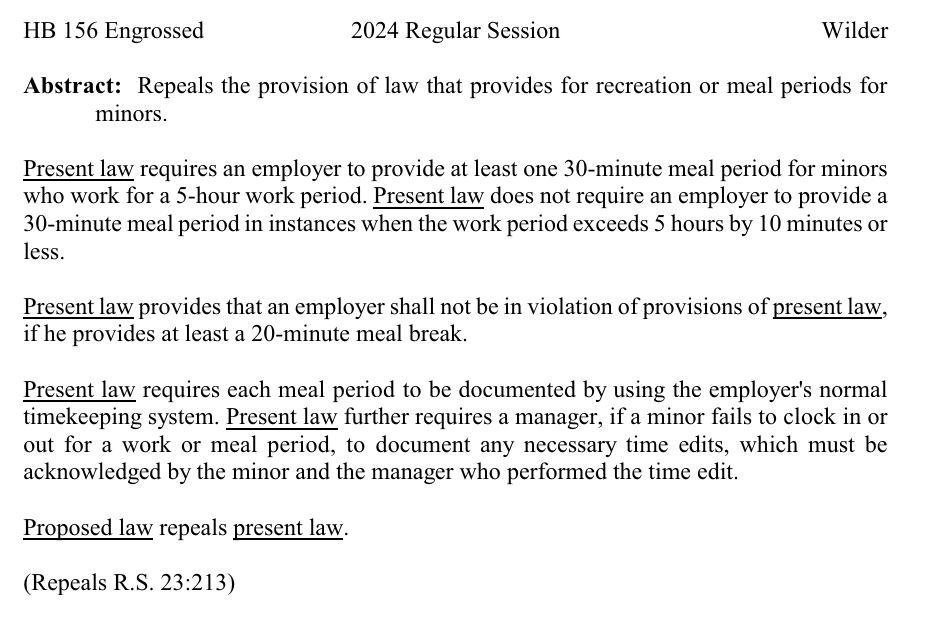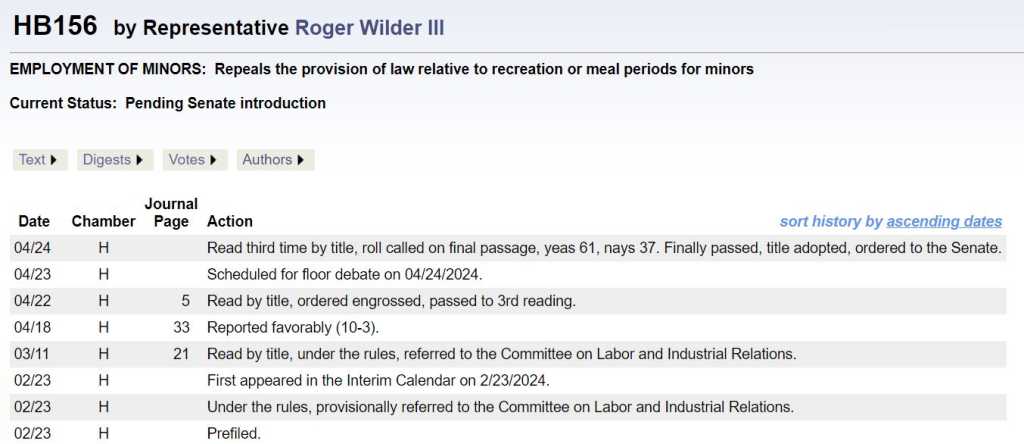Everyone Deserves A Lunch Break :: Why Moms Should Care About HB156

Currently, I have three teens who have held various jobs over the past few years with amazing bosses who taught them invaluable technical and soft skills, from developing relationships with colleagues and following implied and expressed rules to using equipment and completing paperwork. They were encouraged and inspired to improve because they experienced other people interested in their well-being. Breaks were required and encouraged to help them have physical and mental rest, which reduced mistakes and made them more productive employees. Hearing the importance of rest from another trusted adult made my job as a parent easier because our messages supported each other. They continuously learn from their mistakes, especially when they impact others.
House Bill 156 (HB156) by Representative Roger Wilder III regarding the employment of minors inspired me to encourage citizens to use their voices. HB156 removes the required break for minors working for more than 5 hours because he considers minors to be 8-year-olds as opposed to “young adults who are 15 or 16 and don’t need to be told what to do.” Ironically, the authors of another bill have a conflicting definition of minors. HB577 prohibits social media companies from collecting data on minors. Two members of the Legislative Youth Advisor Council, who are currently juniors and seniors in high school representing themselves and classmates, also identified as minors and were asking for protection beyond what they or their parents could provide. It seems odd that we can argue that working teens aren’t minors who need protection and teens of the same age are “young adults” who don’t need protection.
Representative Wilder explains his rationale for HB156 here (See 1:34).

Considering some teens eat lunch at 11 a.m. and go straight to work after school, eliminating a mandatory break could be extremely harmful. For the argument that kids don’t know what to do after they eat, employers could teach them how to be responsible by doing homework or studying, going for a walk, getting fresh air, or taking a power nap. Finally, employees should be taught to follow the law and address the extra paperwork required for violations. If they did, there would be no additional paperwork to address said violations.
Like you, I’m busy. Finding time to research and follow bills can be time-consuming. But these bills become laws that will positively or negatively affect the lives of us and our children. When your oldest is 2, it’s difficult to imagine them working. However, thinking that you could have prevented a law allowing their employer to schedule them from 3-9 pm without a break will help you sleep better at night.

Unfortunately, HB156, to remove lunch or recreation breaks for minors, passed the House today (61 – 37). Now, it moves to the Senate.
What can you do?
Contact your senators and express your approval or opposition to HB156. Contact the author of the bill and share your support or opposition. You can write letters, send emails, make calls, or meet with the author. Regardless of how much you may oppose a bill, remain respectful, concise, and specific with evidence to support your arguments.
Below are the steps to find a bill.

- Visit the Louisiana Legislature’s Website: Go to the Louisiana Legislature’s official website at https://www.legis.la.gov/.
- Navigate to “Bills & Laws”: The homepage has a navigation bar. Look for a section titled “Bills.” Click on it to access the bills database.
- Search for Bills: Within the “Bills & Laws” section, you will find options to search for bills by various criteria, such as bill number, author, subject, or keyword. Use the search tools provided to see the proposed bills you’re interested in.
- Browse Recent Legislation: Alternatively, you may find links or sections on the website that allow you to browse recent legislation or view bills by session. This can be useful for staying updated on new proposals and legislative activity.
- Read Bill Text and Status: Once you’ve found a bill of interest, click on its title for more information. You should be able to view the bill’s full text, its status in the legislative process, and any related documents or amendments.
We would love to hear what bills are meaningful to you!
















